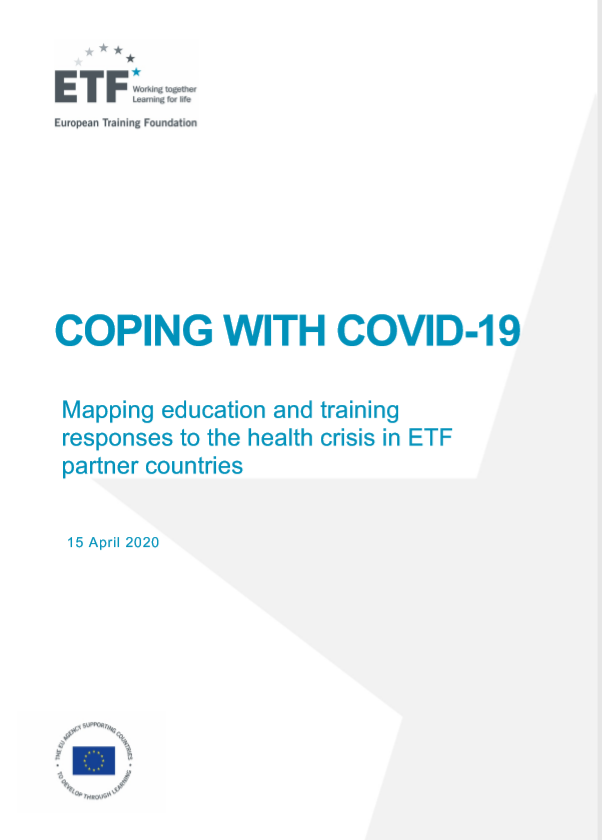COPING WITH COVID-19: MAPPING EDUCATION AND TRAINING RESPONSES TO THE HEALTH CRISIS IN EUROPEAN TRAINING FOUNDATION (ETF) COUNTRIES

The lockdown continues in most countries of the EU neighbourhood and Central Asia. With the prospect of longer-term school closures, new measures are being taken to deal with the need to care for all learners, teachers and trainers, and impossibility of proceeding with end-of-year assessments.
As school closures continue in most of the European Training Foundation (ETF) partner countries, the ETF follows the developments in each of them.
You may be be interested to know and learn from what is happening in these countries and how education sector is copying with these big challenges of school closure.
In this report by the European Training Foundation (ETF) there are many examples of good practice, and cooperation among actors and with donors forging ahead in most countries. The coming weeks will be crucial, not only for decision-making on how to close the current school year, but also for the future. This will require strong cooperation among all actors involved in shaping education and training policies. Highlights include:
• Increased attention to support for and delivery of vocational education and training, including practical training, in most countries. Some countries are yet to address vocational and professional training. The diversity of programmes and requirements make it difficult to standardise provision or build on economies of scale.
• Most countries are advancing their reflections on final examinations and certification, including starting training for online assessments and rolling out systems for online evaluation.
• Research and evidence collection is gathering momentum, both through the activity of donors (several surveys and data collection exercises are under way either on general measures and responses, or on specific subjects) and at national level (in particular surveys targeting teachers and trainers, families and students), as well as through the research community. • Support to teachers and trainers is provided through dedicated platforms and through peer support at provider level, as well as through tutoring programmes delivered centrally by national authorities.
• Bottom-up initiatives are multiplying, including cooperation with the private sector to boost connectivity and access to equipment for teachers, trainers and learners and civil society organisations. Providers are sharing good practice and organising peer learning and support and upscaling models and approaches.
